The U.S. Constitution, the oldest actively surviving governance text of its kind in the world, is a central but disputed story for America, like the Crown in England a symbolic Venn diagram of culture and government. In this series we explore the poetics of the Constitution more through cultural than social or political or legal lenses, while also including discussions of current issues involving American identity and U.S. Supreme Court decisions as they relate to culture and our story of ourselves. In the process, we ask the question, from those with different backgrounds and perspectives, what is the American story embodied or framed or restricted by the Constitution? BPAL acknowledges the generous support of the Open Discourse Coalition in helping to make this ongoing series possible.
—What is the Point of a Liberal Arts Education? Feb. 8, 2018
Professors Robert George and Cornel West address the role of education in a republic at the Weis Center at Bucknell, in “What is the Point of a Liberal Arts Education?”

—Class, Politics, and American Identity in Flyover Country, Jan. 22, 2020
Sociologist Jennifer Silva, of the Indiana University School of Public and Environmental Affairs, explores issues of class and family, and transformations in rural and working-class American communities such as in Pennsylvania’s coal region, and hwo these impact ideas of American identity and self-government.
Video of the event can be found here

—The 70th Anniversary of the Korean War: Its Legacy for American Identity in the World Today, October 30, 2020
Historian Victor David Hanson of the Hoover Institution explores how the Korean War reflected and shaped American identity in the Cold War era, in relation to America’s framework as a constitutional republic.
A video of the talk is linked here.

This program was dedicated to the memory of Medal of Honor winner George Ramer, Bucknell Class of 1950, on the 70th anniversary year of the Korean War.
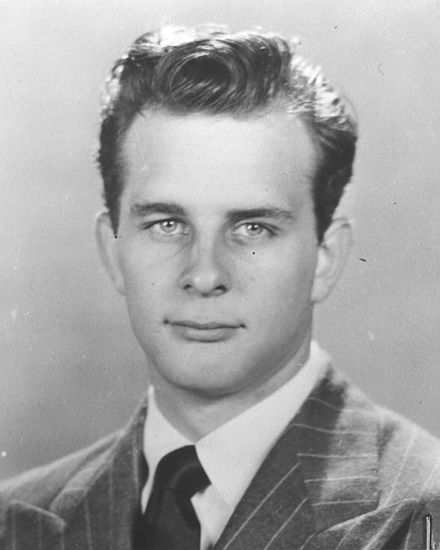
—Systemic Racism: Truth or Poetic Truth? Nov. 17, 2020
Professors Shelby Steele and John W. Fountain offer different perspectives on systemic racism as an issue in American republicanism, with filmmaker Eli Steele, and Bucknell businessman and alumnus Ken Langone, focused on the new film What Killed Michael Brown?
https://mediaspace.bucknell.edu/media/2020-11-18-Systemic-Racism/1_9rioy69k
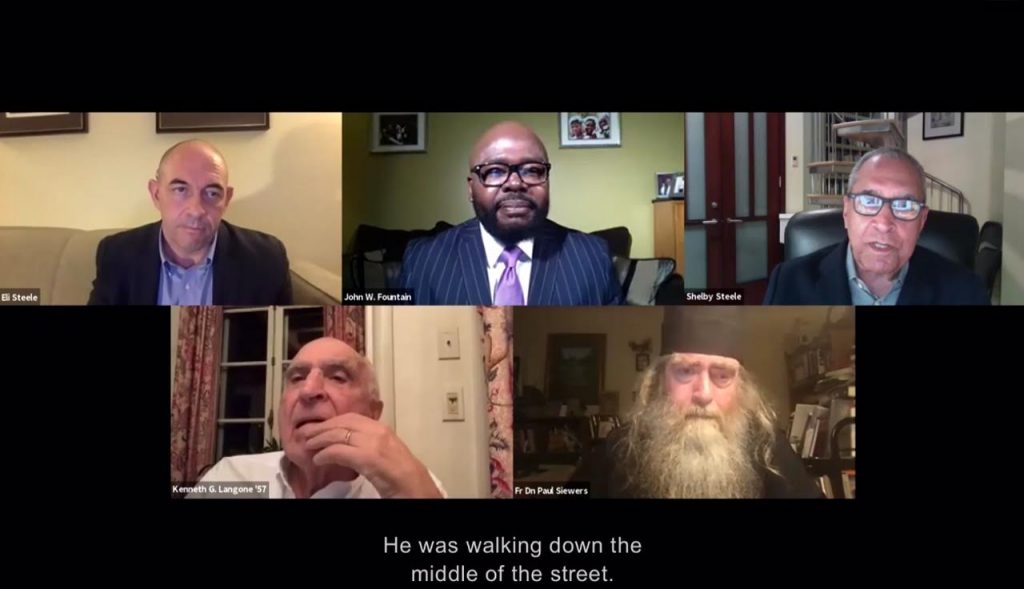
—American National Identity: Lincoln at Gettsyburg, Nov. 19, 2020
Historian Allen Guelzo explores the relation between President Abraham Lincoln’s famous Gettysburg Address and American identity, by extension in relationship to the disputed story of America as a republic in the U.S. Constitution.
Video of the talk can be viewed here.

—Religious and Sexual Identities in the Republic, Feb. 18, 2020
Writers Rod Dreher and Andrew Sullivan address
“Religious and Sexual Identities: Co-Existence or Cold Civil War?”


—Dobbs and Abortion, Oct. 19, 2022
https://mediaspace.bucknell.edu/media/t/1_j3xgv9o1
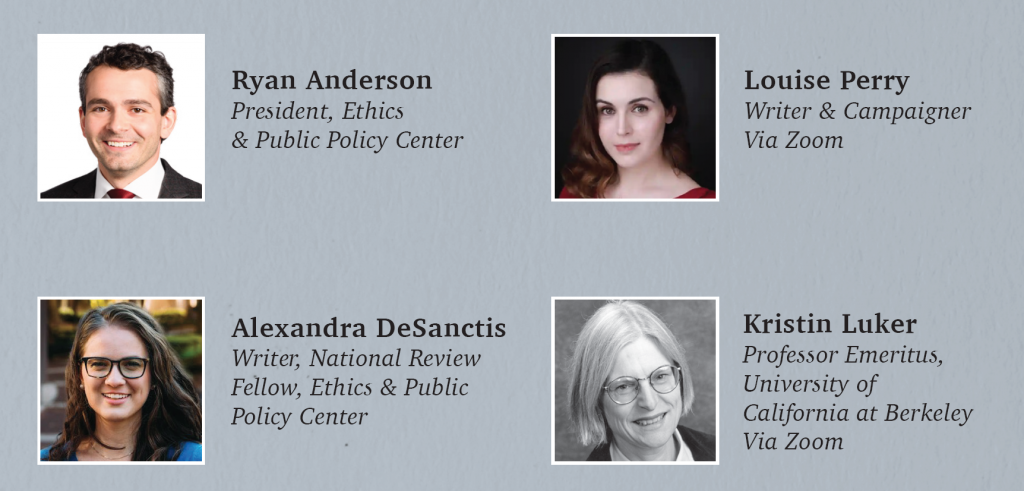
—The Right to Bear Arms and the Bruen Case“: Tues. Nov. 15, 2022
Video of event: https://mediaspace.bucknell.edu/media/1_t1gafqve
For the first time in recent memory, a forum at Bucknell features two prominent scholars of the Second Amendment debating it and gun issues. Prof. Joseph Blocher of Duke Law School (top below) and Prof. Nelson Lund (bottom below) of Scalia Law School at George Mason will discuss whether/how the right to bear arms is a relevant constitutional “check and balance” today, what type of gun-control regulations are permissible under the Second Amendment in light of SCOTUS trends, and where issues about “gun rights” and “gun control” will lead in 21st-century America life.
Whether you are in favor of the right to bear arms or the right to arm bears, don’t miss what promises to be substantive expert discussion from different perspectives on a controversial topic: The role of guns in the culture of the American republic.
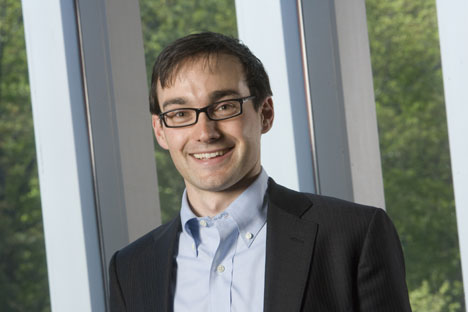
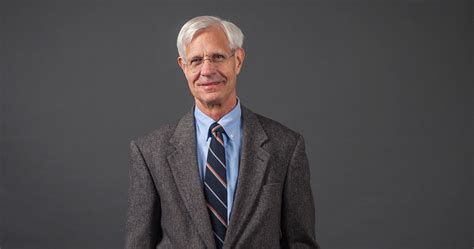
—The First Amendment’s “Free Exercise” of Religion and Elite Anti-Christian Bias Today, March 28, 2023
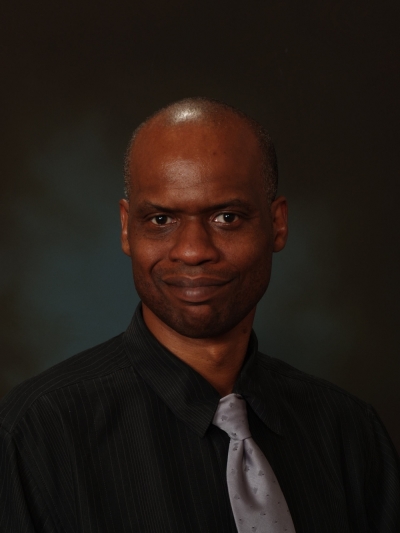
Video of talk: https://mediaspace.bucknell.edu/media/t/1_q0fglfow
Video of related Bucknell Diversity Symposium session on “How to Help People of Faiths Belong Better at Bucknell: Secular Privilege at a Secular University”: https://mediaspace.bucknell.edu/media/1_7xuo8382
The US Supreme Court in the 2022 Kennedy case ruled on school prayer issues that highlight tension in American culture between the First Amendment’s guarantee of the free exercise of religion and increasingly dominant secular views, which often correlate with anti-Christian bias in the global West. Sociologist George Yancey of Baylor University will address his research on such bias, and tension between it and the “free exercise” tradition of the U.S. Constitution. Prof. Yancey is author of Compromising Scholarship (Baylor University Press), which explores religious and political biases in academia; What Motivates Cultural Progressives (Baylor), which examines activists who oppose the Christian Right; There is no God (Rowman and Littlefield), which investigates atheism in the United States; and So Many Christians, So Few Lions (Rowman and Littlefield), which assesses U.S. “Christianophobia” today. He also is co-author of Investigating Political Tolerance at Conservative Protestant Colleges and Universities (Routledge) and of Prejudice in the Press?: Investigating Bias in Coverage of Race, Gender, Sexuality and Religion (McFarland), and among other writings authored an article in the Journal of Contemporary Religion on “Is Christianity Still the Dominant Religion in the United States?” The focus of this event relates also to the campus discussion in the Bucknell Diversity Symposium on March 31, 2023, on “How to Help People of Faiths Belong Better at Bucknell: Dealing with Secular Privilege at a Secular University,” linked above.
—The First Amendment and Curriculum Controversies, April 18, 2023
Video of program: https://mediaspace.bucknell.edu/media/1_h8l38ft2
Current debates over how best to educate young people on U.S. history and race, and on sex and gender, affect all levels of American education. They reflect cultural divisions on issues of social and personal identities. The First Amendment’s guarantee of free speech raises questions over rights of various constituencies in the debates—students, educators, parents, voters, taxpayers, cultural minorities, elected officials. Four speakers with experience in addressing the key issues offer different perspectives on constituencies and curriculum debates.
In-Person:
–Bion Bartning, founder of the Foundation Against Intolerance and Racism (FAIR), entrepreneur and investor.
–Prof. Ashley White, Education Department, University of Wisconsin at Madison, Inaugural Education Fellow for Equity and Opportunity with the NAACP; previously a teacher for 15 years.
By Zoom:
—Prof. Amy Brainer, Director of the Women’s and Gender Studies Program and the LGBTQ Studies Certificate, University of Michigan at Dearborn.
—Prof. Mark Regnerus, Sociology Department at University of Texas at Austin. Researcher on sexual behavior, family, marriage, and religion.
—How Important is Family to a Republic? April 19, 2024
